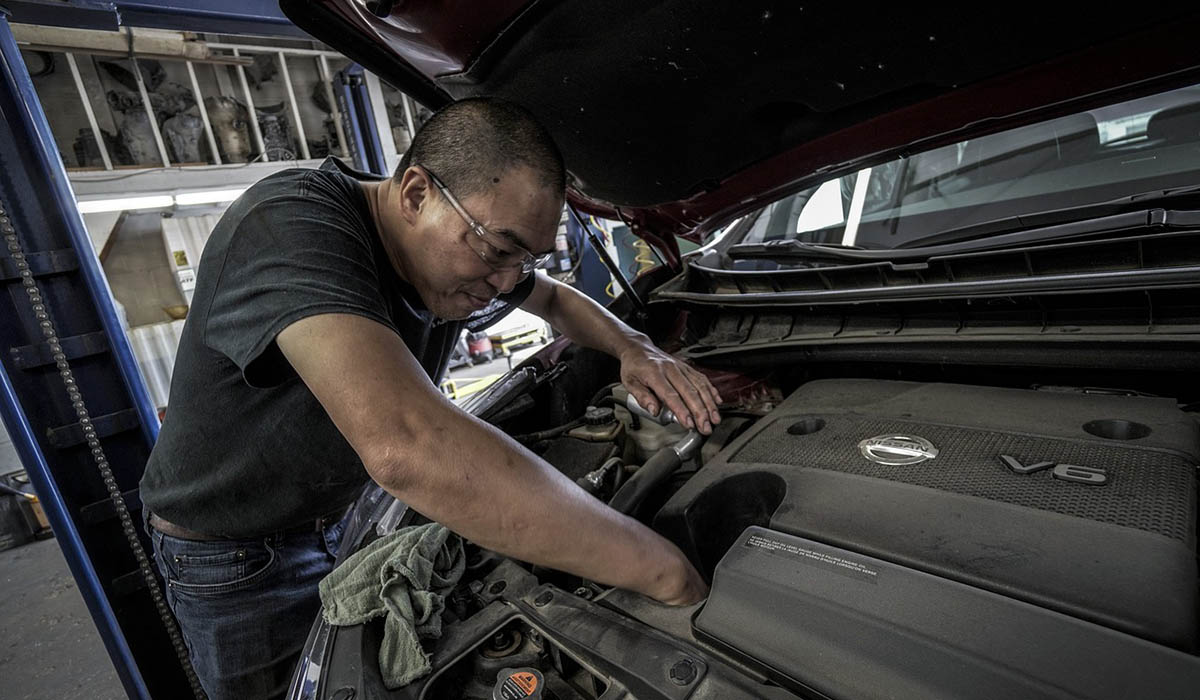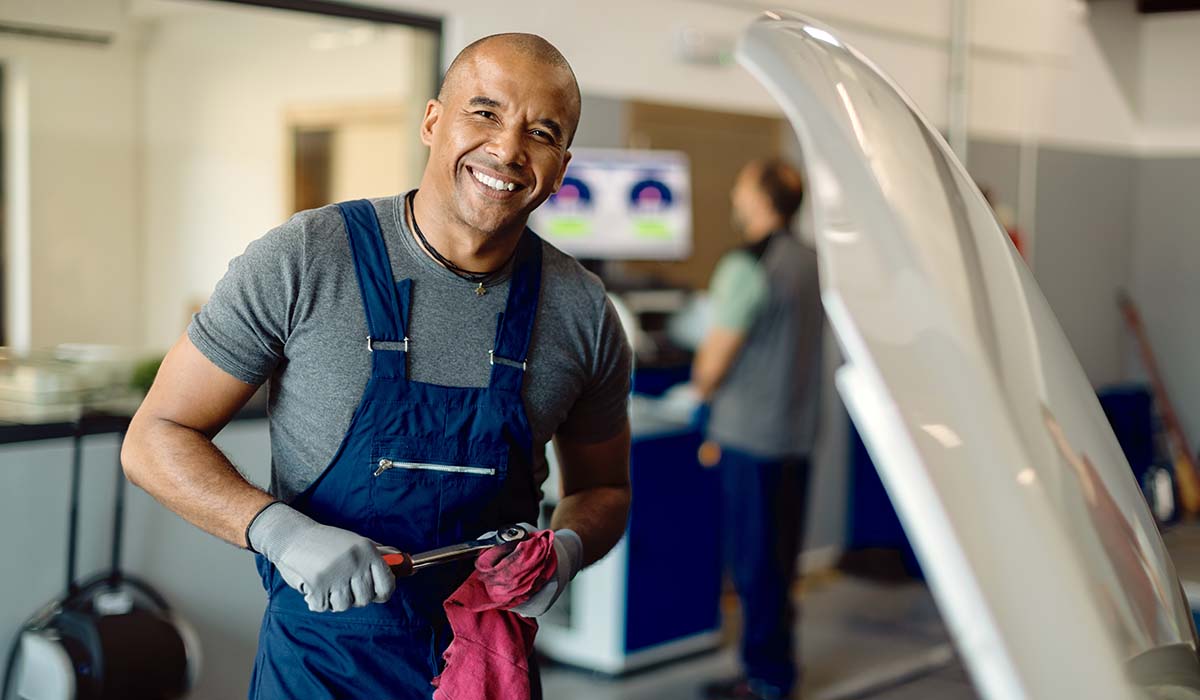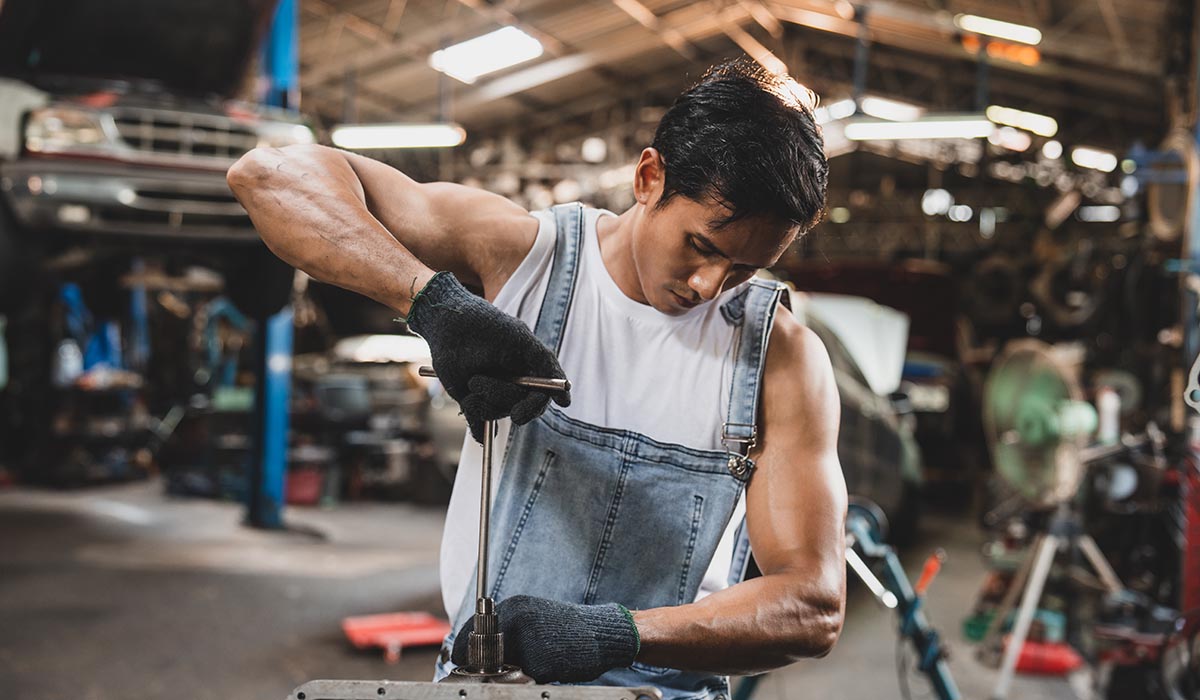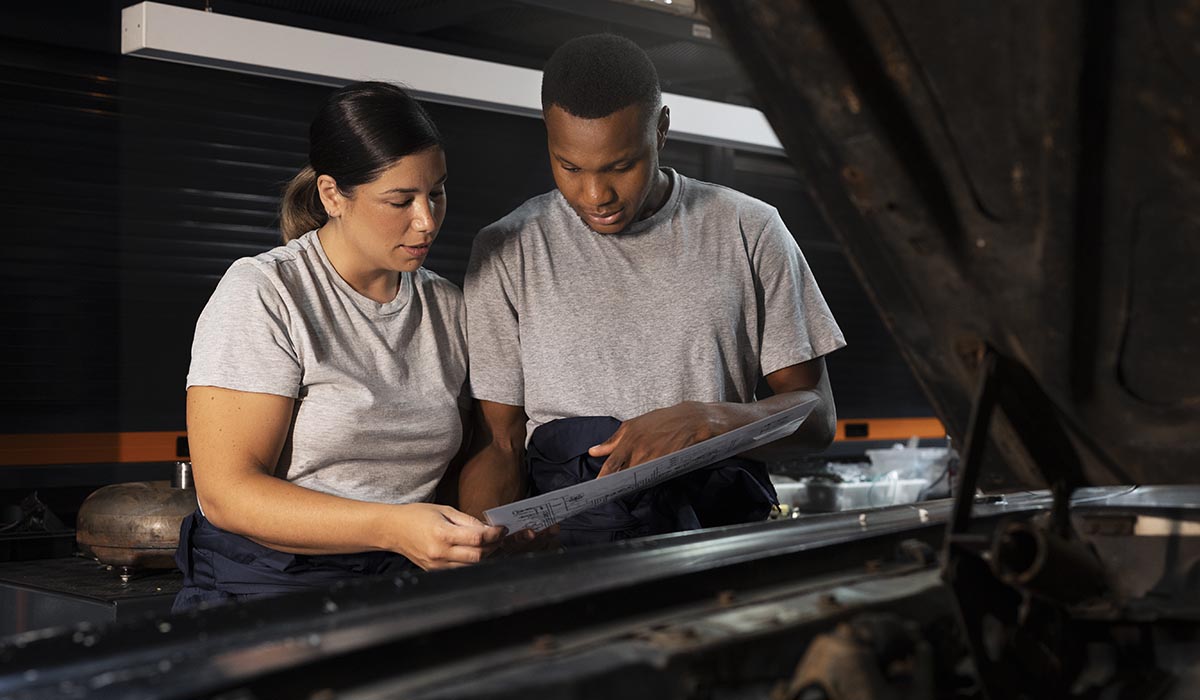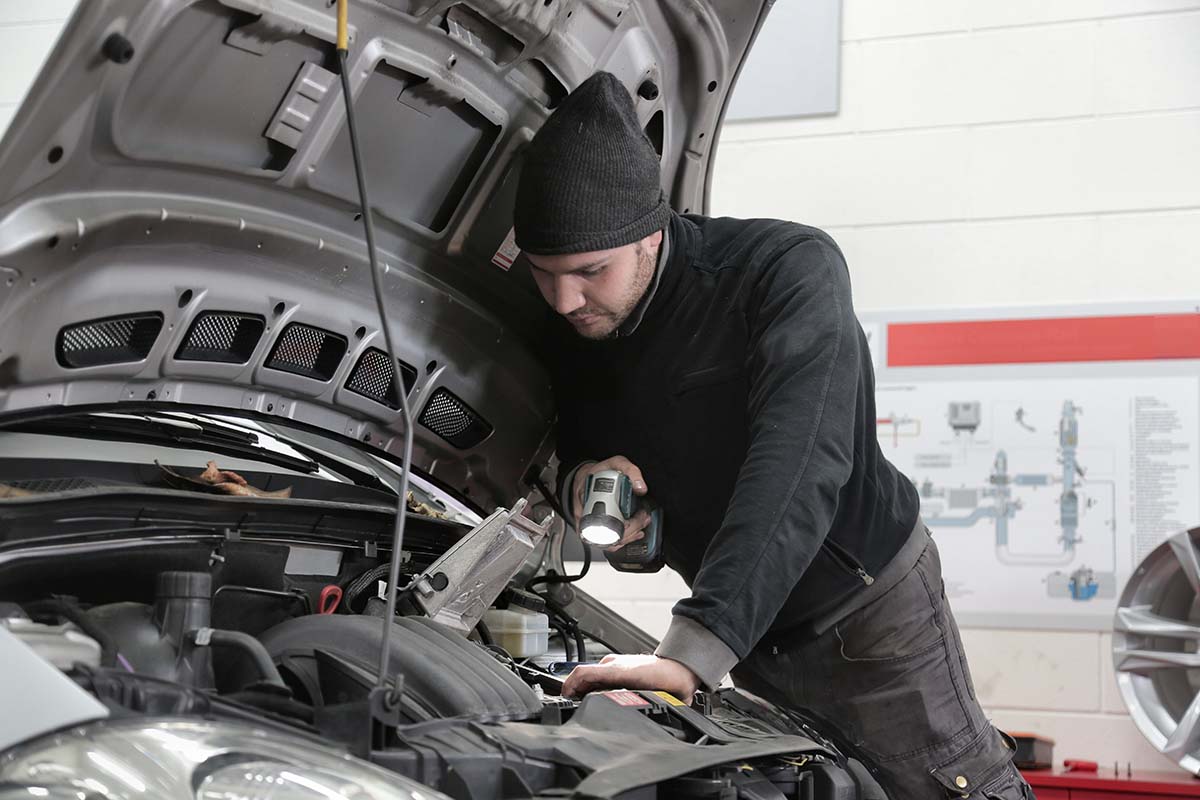The Pros, Cons, and Perils of Fixing Your Car
KEY POINTS
- Balancing Confidence and Caution: Tackling car repairs requires a mix of confidence to learn and caution to avoid undertaking complex tasks beyond one’s skill level, ensuring safety and vehicle integrity.
- Starting with the Basics: Beginning with simple maintenance tasks, like oil changes or wiper replacements, can build foundational knowledge and confidence for more complex repairs over time.
- Educational Resources and Experience: Leveraging online tutorials, guides, and hands-on practice can gradually enhance one’s ability to perform car repairs, emphasizing a steady learning process and cautious progression.
If you are buying a car for the first time, it can be a fantastic experience, but of course, it comes with so many different factors to be responsible for. A car can instantly make you understand how little you know.
Fixing cars is one of those things that may very well be best left to seasoned professionals, but when we look back, and our parents or grandparents were able to tinker under the hoods with relative ease, does this mean we need to be the same?
While there are many different factors that we need to discuss our lack of knowledge, partly because we were all raised on digital devices and weren’t particularly encouraged to be handy, if you feel now is the time for you to start fixing your car, you need to consider some of the following components.
Your Level of Confidence
It’s a callous thing to get right because we need to be confident in our ability to fix a car, but at the same time, if we are too scared to take risks, we’ll never learn anything.
Arguably, the best approach is to practice, but if you are looking to fix a Mustang exhaust 2024, this can very well be a big ask.
In these instances, you should always go to the professionals, but if you don’t have any confidence in fixing the most basic things, this is where you need to begin.
There are many benefits to fixing a car yourself, for example, giving you the flexibility to tackle repairs at a patient time that’s most suitable for you.
It can save on labor costs, but it can also be a great learning opportunity to help you understand how a vehicle functions. This is why it’s a good idea to, at the very least, do some theory work on the insides of your car.
Learning the Bare Basics as a Starting Point
We can all do some basic car repairs at home, which will make a big difference in the overall costs. But we also need to know how to do some of the basic car repairs, including the following:
- Changing the engine oil and filter is one of the most common engine maintenance tasks, and you can do this with the right tools.
- You are recharging your car’s air conditioner, which you can do with a recharge kit.
- Replacing the wiper blades is an excellent, straightforward DIY job that you can do at home as long as you order the right wiper blades for your car.
- Tire rotation, which is essential for even tire wear and you can do it at home, as long as you have the right tools.
- Checking and topping up fluids like engine oil, brake fluid, and power steering fluid are straightforward but vitally important tasks that can make a massive difference.
The latter point is critical because so many basic car problems can be attributed to a lack of the right fluids. But it’s important to remember that more complex repairs, such as the gearbox, electrics, or suspension, are best left to professional mechanics.
Understanding the Risks of Fixing Your Car
If we are confident enough to master the basics, we may think we have the confidence to get a better understanding of the vehicle.
While there are so many benefits of gaining a better understanding of the mechanics of your vehicle, such as a great sense of safety on the road and also reducing the likelihood of being taken advantage of by unsavory mechanics, it’s important to be aware of the potential drawbacks and the risk of mistakes and even the possibility of voiding a warranty if repairs are not performed correctly.
There are several risks of fixing a car yourself, including the following:
- Safety hazards such as DIY car repairs pose a number of different safety risks, such as the potential for serious injuries or even death if you are working on complex systems or electrical components.
- Compromising the safety of the vehicle because any inexperience or feeling like you can push ahead with something can result in mistakes that could compromise the safety of the vehicle, such as incorrectly repaired electrical systems or improperly repaired brakes.
- Attempting any repairs can void the manufacturer’s warranties, leaving you responsible for any subsequent issues or repairs, which can be incredibly costly.
- The potential for further damage can result in even costlier fixes and compromise the vehicle’s safety.
- DIY repairs also do not come with guarantees or warranties, leaving you vulnerable if the repair does not hold up.
- As car repairs can be complex and time-consuming, this may require substantial practice and learning to perform correctly.
Ultimately, inaccurate repairs can lead to expensive complications. Everything is intricately connected in a car; an incorrectly installed radiator can result in a blown engine.
This is why it’s essential to carefully consider the risks and weigh them against the potential benefits before deciding whether to pursue this yourself.
Complex issues are always best left to a mechanic rather than you having a false sense of security that you can do it as well as your father or grandfather did.
What Is the Best Way to Be More Confident at Fixing Cars by Yourself?
The reality is that most of us don’t have the essential knowledge to fix these things by ourselves.
Sometimes, an unsavory comment by a parent can make us feel that we should have listened to their advice when we were younger.
While modern cars come with an abundance of warning lights and smart technology that can result in far fewer trips to the mechanic, if you feel like you need to be more confident at fixing cars by yourself, you need to consider the following tips and insights:
Start with Simple Repairs
It’s so important to begin with the most basic maintenance tasks. Replacing the wiper blades and topping up fluids can help to demystify the process somewhat.
As you become more comfortable with basic repairs, you can progress to the more complex ones over time.
There are so many aspects of a car that we shouldn’t touch for a long time until we’ve got years of experience under our belts.
Educate Yourself
It’s important to take advantage of the information we can find online and in tutorial videos and manuals.
There’s an abundance of literary resources for every single car out there, and when you start to understand the nuts and bolts, this can build your confidence.
But when you start to learn about these, don’t make the mistake of reading something once and then pressing ahead.
Like in DIY, you should measure twice and cut once; in other words, be sure you know what you’re doing before you start pulling out wires and hacking away.
Learn from Experience
The more you work on your car, the more you are going to learn about it, and this means the greater your confidence will be.
Each repair you complete is going to contribute to your growing expertise and self-assurance.
Experience is the best teacher, and in an age where we can find a video on YouTube that lasts only a couple of minutes, it’s easy to be lured into a false sense of security.
This is why we should never forget that the process of making changes to our cars is one that can last for years.
It’s important to become more self-assured gradually rather than feeling overwhelmed by making any car fixes.
Utilize Available Resources
There are great websites out there such as AutoMD, which provides difficulty estimations of various repairs. This can be very useful because you can instantly assess if a repair is within your capabilities.
We should never learn to run before we can walk, so we should be slow and steady with our understanding of our cars.
Embrace the Learning Process
Recognizing that being proficient at repairing cars is ultimately a journey. By continually expanding your knowledge and hands-on experience, you will gradually gain confidence in tackling various repairs.
It would help if you never were afraid to go and speak to others about fixing a car, but make sure that it’s within your confidence level.
People can easily pull the wool over their eyes by naming certain tools or aspects of the mechanics that it’s like they speak a foreign language.
We should always learn to embrace the learning process rather than thinking that we know it all instantly.
Ultimately, many people will never learn the bare basics of fixing their cars.
The benefits of being able to fix certain things will mean you have a lot of confidence in yourself, but you also can save money without needing to go to a mechanic.
Should we ever attempt to fix our cars ourselves? There are many reasons why the answer is yes, as long as we are careful and considerate about it.
